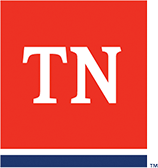This application is closed for Fiscal Year 2025 as of 2/19/25.
Tennessee complies with all state and federal non-discrimination laws and is committed to providing access to the arts for all communities of the state.
This grant category offers grant funding for Professional Fees and Supplies for arts projects which focus on increasing availability of arts to Tennesseans with limited access.
The Commission awards Arts Access Mini-Grants in amounts up to $2,000. Arts Access Mini-Grants are smaller grants designed to introduce new applicants to the grant making process. Arts Access Mini-Grants do not require a match. The Commission funds will be paid as reimbursement to grantees upon receipt and approval of reports and invoices. Grant recipients must be prepared to handle expenditures prior to reimbursement.
Application Deadline: 30 days prior to the beginning date of the project activity.
The Arts Access Mini-Grant (AA-MG) offers direct support for arts projects that focus on increasing availability of arts to populations with limited access.
Proposed arts projects must involve one or more of these recognized art forms: visual, craft, media, design, music, theater, dance, folk, or literary arts. The following are examples of activities and expenditures that are consistent with the funding philosophy for AA-MG funding:
- Contracted artists fees for professional artists
- Materials and supplies needed for participants in the proposed art project
- Other art related projects as discussed with the Director of Arts Access
The following activities and expenditures are not appropriate for funding through this program:
- Food and hospitality
- Permanent equipment purchases
- Scholarships and subsidized programming
- Payments to members of the organization’s board
- Events to which the public is not invited
Projects may begin no earlier than July 1, 2024 and must be completed no later than June 15, 2025.
Funds awarded to a single organization in this category range up to $2,000. This grant does not require a match. Funds however are distributed on a first-come, first-serve basis and once funds are depleted for a fiscal year, no more projects will be funded during that year.
Grant recipients must be prepared to handle expenditures prior to reimbursement since grant funds will be paid as reimbursements after the event. Grantees must submit all required close-out paperwork, including invoices and a list of expenditures showing where the funds were used. All grants must be closed by or before June 15, 2025. Failure to submit all of the closeout requirements may jeopardize future funding.
The Tennessee Arts Commission reserves the right to deny any application, if the proposed activities purpose is outside of the scope or spirit of this grant program.
This grants category is especially designed for new organizations that are not currently receiving TN Arts Commission funding. An organization is eligible to apply for funding if it is a nonprofit organization legally chartered in Tennessee, governmental (local or regional), and/or nongovernmental entity in possession of a determination letter from the Internal Revenue Service declaring the organization exempt from federal income tax under Section 501(c)(3) of the Internal Revenue Code. Arts and non-arts organizations are eligible to apply. Failure to provide all nonprofit status documentation in the online grants system will result in the application being disqualified. Only one (1) application per organization per year may be funded in this category.
The following are not eligible to apply in this category:
- K-12 Public and Private Schools;
- Current Operating Support Grantees (MCI, PS, SUPS/SRPS)
- Current Project Support Grantees (APS, RAPS, Arts Access, Creative Placemaking, and RAFF)
- Current Arts Education Grantees (AE-CL, AE-TT, Arts Pathways for Youth Success, Arts360)
Arts organizations that receive revenue from a “New Specialty Earmarked Plate” under T.C.A 55-4-215 (a) (1) are ineligible for Tennessee Arts Commission grant funding.
Debarment and Suspension. Grantees are required to sign contracts certifying to the best of its knowledge and belief, that it, its current and future principals, its current and future subcontractors and their principals are not presently debarred, suspended, proposed for debarment, declared ineligible, or voluntarily excluded from covered transactions by any federal or state department or agency.
Affirmative Duty to Report Major Organizational Change
Any grantee shall promptly notify the State in writing of any significant changes in the organization’s structure, leadership or financial circumstances that could affect services provided under the grant contract resulting from this application.
All Commission sponsored programs, services and facilities are fully accessible to all Tennessee artists and citizens. Organizations are urged to consider contracting with diverse artists, artists living with disabilities, and/or artists representing Tennessee’s diverse artistic and cultural heritage. No person on the basis of race, color, national origin, disability, age, religion or sex shall be excluded from participation in, or be denied benefits of, or otherwise be subject to discrimination of services, programs and employment provided by the Commission and its contracting agencies. If an individual believes they have been subjected to discrimination, they should contact the Commission’s Director of Arts Access, Kim Johnson (615) 532-9797.
The application should demonstrate a strong plan to serve populations with limited access to arts and demonstrate how the project will add value to the people and/or communities it proposes to serve. The application should also be well-planned and presented with all questions answered. If Commission funding has been previously awarded, the applicant should have a past record of administrative cooperation and compliance with the Commission’s grant requirements and procedures. Arts Access Mini-Grant applications are reviewed in-house by Commission members and staff. Funding notification will take place via email.
Organizations may receive funding based on the narrative case presented in the grant application, the accuracy of the completed application, and the availability of funds, which are distributed on a first-come, first-served basis.
This grant can fund Supplies and contracted Professional Fees, negotiated between the organization and artist, only. Travel, hotel, and food are not options for this grant application.
The TN Arts Commission reserves the right to deny or withhold, in whole or in part, public funds for projects, programs, or other activities deemed inappropriate by the Commission, or if the proposed activities purpose is outside of the scope or spirit of this grant program.
- Register to use the Online Grants System. You are strongly advised to register well in advance to the application deadline. Anyone registering close to the deadline date can expect delays in the processing of their grant application.
- Once you’ve been emailed a username and password, log in to the Online Grants System to complete your profile and begin an application.
- Use the “Organizations” tab on the left-hand menu to ensure that the profile is complete and accurate. This information is as important as the application itself. Incomplete or erroneous data will impact your chances for funding. To edit the profile, click the “Edit” button at the top of the Organization screen.
- Use the “People” link to ensure your profile is complete and accurate. This information will also be used in the review of the application. To open the record for editing, click the edit button at the top of the screen.
- When your “Organization” and “People” profiles are complete and accurate, select the “Apply for Grants” tab again and click the “Apply for a ROLLING Grant” link listed on the page.
- Complete all of the application fields.
- Create and upload required attachments.
- Submit by at least thirty (30) days prior to the beginning date of the project activity.
NOTE: The forms in this portal do not auto-save. Always click the “Save” button before navigating away from the form you are editing to save your work.
Beware—clicking the back navigation button on your web browser will exit you from the system and you will lose your work.
Required Documents:
You will be prompted to upload the following documents in the Required Documents section of your application in the Online Grants System.
In the Application under the section, Documents, upload the following:
- Corporation Annual Report: Only nonprofit organizations with 501(c)3 status will be prompted to upload this document (as required to be filed annually with the Secretary of State’s Office). In lieu of the report, you may also submit a copy of the email verification issued by the Secretary of State’s office or a copy of the online verification sheet maintained by the Secretary of State’s Office found here. Entities of government do NOT submit.
- List of Board of Directors. Only nonprofit organizations with 501(c)3 status will be prompted to upload this document. Note that Commission staff may request that grantees provide additional information about the board including but not limited to contact information and occupation during the grant period. The board list (at the time of application) must include only the following:
- Full Name
- Email address
- Number of years on the board
- Length of term(s)
In the “Organization Profile” under the section, Documents, upload the following:
- Bylaws: Only nonprofit organizations with 501(c)3 status will be prompted to upload this document. Upload the most recent copy of the Bylaws of the organization in the Organization Profile.
- W-9 Form (if this application is the organization’s first application submittal)
- FY25 Title VI training and certification form
Organizations that receive grant funding from the TN Arts Commission must complete Title VI training certification in the Online Grants System before payment will be distributed. If your agency has already completed the training in the TN Arts Commission’s online grant system for the FY25 fiscal year, it is not necessary to repeat the training. Failure to complete this training may result in the cancellation of your grant.
If you have filled out your organization profile, copies of your By-Laws should automatically upload in the application under “Organization Documents.”
Direct questions to:
Kim Johnson
Director of Arts Access
kim.johnson@tn.gov
615-532-9797





